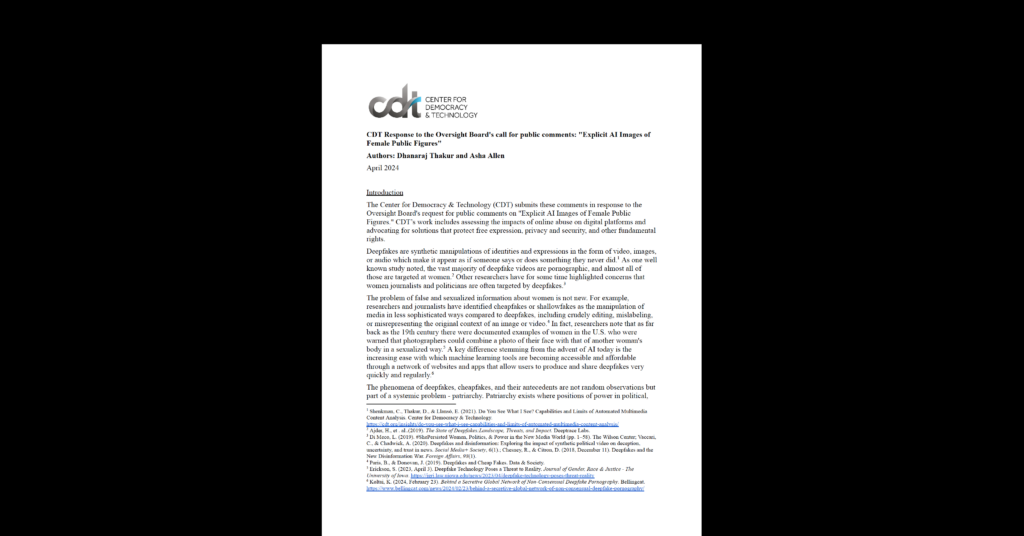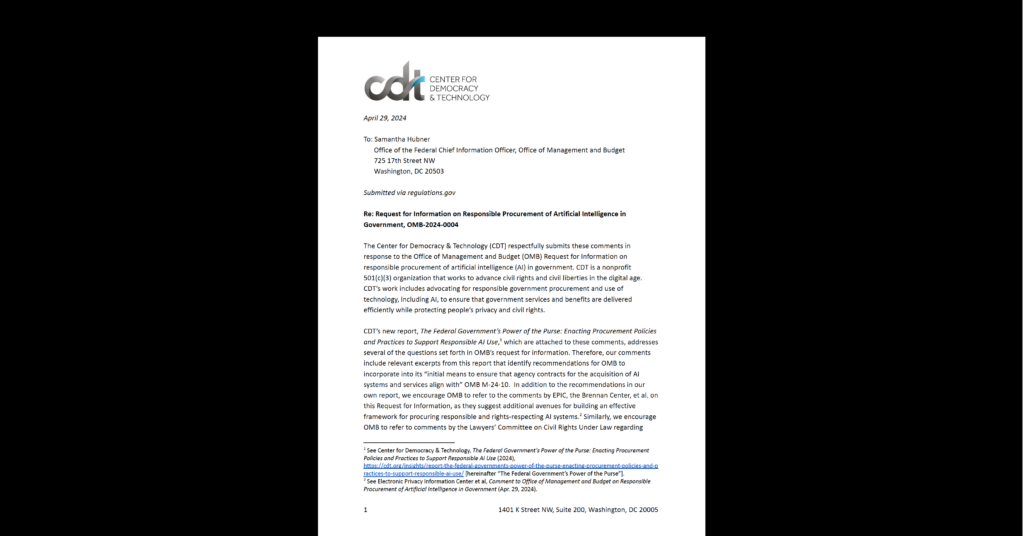Free Expression, Open Internet
The Needs of the 21st Century Creator

CDT is taking part in Copyright Week, a series of actions and discussions supporting key principles that should guide copyright policy. Every day this week, various groups are taking on different elements of the law, and addressing what’s at stake, and what we need to do to make sure that copyright promotes creativity and innovation.
Copyright is a vital source of economic empowerment and entrepreneurship that needs to be utilized more by 21st century content creators. Because the new generation of creators draws more heavily from copyrighted materials, it is imperative that they understand how to protect their creative works and promote copyright policies that affect the platforms that host their work.
YouTube, fan work, and remixes are emblematic of this change as they invite new types of innovators to break with traditional notions of expressive work. YouTube first made waves on the internet over a decade ago, and has since contributed to the rise of “YouTubers” like Eddie G, Jouelzy, and Kat Lazo. Groups like the Organization for Transformative Works (OTW) support this rich body of work created by fan artists and writers. Even the rise of remixed music on platforms like SoundCloud has launched the careers of many independent artists and has become a significant part of American culture. And through many platforms that host user-generated content, it has become much easier to monetize your work, such as pre-roll ads on YouTube.
To fully realize the potential value of these works though, it’s important to understand that copyright is a crucial part of protecting the value of the work
To fully realize the potential value of these works, though, it’s important to understand that copyright is a crucial part of protecting the value of the work. Like other forms of intellectual property, copyright is a social ordering mechanism that contributes to the distribution of wealth, access to resources, and quality of life. By understanding the basic principles of copyright and formally exerting those rights, all creators have the potential to realize the benefits of their intellectual property.
Understanding basic concepts of copyright can be as simple as seeking out online resources that succinctly explain how to get a copyright, what fair use is, and how to know when you are infringing on someone else’s content. Use of another’s work in fan art, YouTube videos, mash-ups, and remixes is a key factor in creativity and innovation today; however, this places small creators in the crosshairs of large record labels, movie studios, and trolls. Understanding copyright as a creative entrepreneur affects your rights, making it as important as knowing your First Amendment rights when you protest or your Fourth Amendment rights when stopped by the police.
Understanding how to be more inclusive of this new generation of creators means understanding their needs as creative entrepreneurs.
Another vital component is engaging content creators in advocacy efforts to protect policies that hold up the internet and support their copyrighted material. This means that creators should contribute meaningfully to larger policy conversations that affect websites and platforms that they use to host their copyrightable material. For example, shielding platforms from liability based on allegedly infringing activities of third parties ensures that platforms continue to host and transmit user-generated content. Additionally, creators need to remain vigilant and continue to push for strong fair use protections.
Promoting the progress of the arts and sciences is intended to benefit everyone, not just a few. Understanding how to be more inclusive of this new generation of creators means understanding their needs as creative entrepreneurs and showing them that copyright protection of their work is an avenue toward full participation in the wealth and culture of society.


